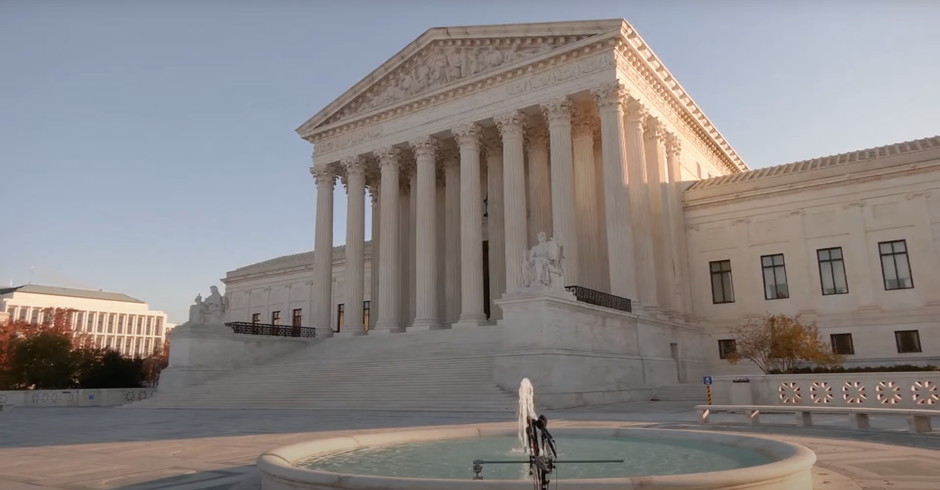[ad_1]
The U.S. Supreme Court handed down a decision on Thursday effectively eliminating all affirmative action admission polices at colleges and universities across the country – with the complete exception of U.S. military academies, after a request from the federal government in the form of an amicus brief. The decision was entirely along ideological lines.
“The court ruled that both programs violate the Equal Protection Clause of the Constitution and are therefore unlawful,” NBC News reported. “The vote was 6-3 in the UNC [University of North Carolina] case and 6-2 in the Harvard case, in which liberal Justice Ketanji Brown Jackson was recused.”
Chief Justice John Roberts wrote the majority opinion. Justice Sonia Sotomayor wrote the minority opinion, with her two fellow liberal justices, Ketanji Brown Jackson and Elena Kagan, joining. Justice Jackson also wrote a dissenting opinion, with the other two liberal justices joining.
Often, justices writing a dissenting opinion will end it with, “I respectfully dissent.” This time, both merely offered, “I dissent.”
And both dissents were scathing.
“With let-them-eat-cake obliviousness, today, the majority pulls the ripcord and announces ‘colorblindness for all’ by legal fiat,” accused Justice Jackson in her dissent. “But deeming race irrelevant in law does not make it so in life. And having so detached itself from this country’s actual past and present experiences, the Court has now been lured into interfering with the crucial work that UNC [the University of North Carolina] and other institutions of higher learning are doing to solve America’s real-world problems.”
“No one benefits from ignorance,” she continues. “Although formal race-linked legal barriers are gone, race still matters to the lived experiences of all Americans in innumerable ways, and today’s ruling makes things worse, not better. The best that can be said of the majority’s perspective is that it proceeds (ostrich-like) from the hope that preventing consideration of race will end racism.”
Justice Jackson did not in any way hold back.
In a footnote she eviscerated Justice Clarence Thomas so completely NYU professor of law Melissa Murray highlighted it and tweeted, “911, I’d like to report a murder.”
Some excerpts from that footnote:
“Justice Thomas’s prolonged attack…responds to a dissent I did not write in order to assail an admissions program that is not the one UNC has crafted. He does not dispute any historical or present fact about the origins and continued existence of race-based disparity (nor could he), yet is somehow persuaded that these realities have no bearing on a fair assessment of ‘individual achievement’.”
“Justice Thomas’s opinion also demonstrates an obsession with race consciousness that far outstrips my or UNC’s holistic understanding that race can be a factor that affects applicants’ unique life experiences. How else can one explain his detection of ‘an organizing principle based on race,’ a claim that our society is ‘fundamentally racist,’ and a desire for Black ‘victimhood’ or racial ‘silo[s]…in this dissent’s approval of an admissions program that advances all Americans’ shared pursuit of true equality by treating race ‘on par with’ other aspects of identity…”
“The takeaway is that those who demand that no one think about race (a classic pink-elephant paradox) refuse to see, much less solve for, the elephant in the room— the race-linked disparities that continue to impede achievement of our great Nation’s full potential. Worse still, by insisting that obvious truths be ignored, they prevent our problem-solving institutions from directly addressing the real import and impact of ‘social racism’ and ‘government-imposed racism’…thereby deterring our collective progression toward becoming a society where race no longer matters.”
Justice Jackson also referenced Chief Justice Roberts’ decision to exempt military academies from this ruling.
“The Court has come to rest on the bottom-line conclusion that racial diversity in higher education is only worth potentially preserving insofar as it might be needed to prepare Black Americans and other underrepresented minorities for success in the bunker, not the boardroom (a particularly awkward place to land, in light of the history the majority opts to ignore).”
Justice Sotomayor slammed her conservative colleagues for once again ignoring stare decisis, the concept the Court should respect prior Supreme Court decisions as precedent.
“It is a disturbing feature of today’s decision that the Court does not even attempt to make the extraordinary showing required by stare decisis. The Court simply moves the goalposts, upsetting settled expectations and throwing admissions programs nationwide into turmoil. In the end, however, it is clear why the Court is forced to change the rules of the game to reach its desired outcome.”
Ultimately, she concludes: “Today, this Court stands in the way and rolls back decades of precedent and momentous progress. It holds that race can no longer be used in a limited way in college admissions to achieve such critical benefits. In so holding, the Court cements a superficial rule of colorblindness as a constitutional principle in an endemically segregated society where race has always mattered and continues to matter. The Court subverts the constitutional guarantee of equal protection by further entrenching racial inequality in education, the very foundation of our democratic government and pluralistic society. Because the Court’s opinion is not grounded in law or fact and contravenes the vision of equality embodied in the Fourteenth Amendment, I dissent.”
The cases are: Students for Fair Admissions, Inc. v. President and Fellows of Harvard College, and Students for Fair Admissions, Inc. v. University of North Carolina et al.
Image: Fred Schilling, Collection of the Supreme Court of the United States
[ad_2]




